What Can Security Solutions of Athens Do for You?
Serving Athens and
Cedar Creek Lake.
This is a placeholder for the Yext Knolwedge Tags. This message will not appear on the live site, but only within the editor. The Yext Knowledge Tags are successfully installed and will be added to the website.
,
This is a placeholder for the Yext Knolwedge Tags. This message will not appear on the live site, but only within the editor. The Yext Knowledge Tags are successfully installed and will be added to the website.
Blog Layout
Elevating Home Safety- A Comprehensive Guide to Residential Home Security Systems
February 26, 2025
Elevating Home Safety- A Comprehensive Guide to Residential Home Security Systems
In today’s fast-paced world, ensuring the safety and security of our homes has never been more critical. Residential home security systems play a vital role in safeguarding our loved ones and protecting our valuable assets from potential threats. From traditional alarm systems to cutting-edge smart technology, these systems offer a range of features designed to provide peace of mind. In this blog, we’ll explore the importance, types, and benefits of residential home security systems, and how they contribute to a safer living environment.
The Importance of Home Security Systems
Home security systems
are more than just a luxury; they are a necessity. Here are some compelling reasons why investing in a residential home security system is essential:
Crime Prevention The presence of a security system acts as a deterrent to potential intruders. Knowing that a property is monitored reduces the likelihood of break-ins and criminal activities.
Protection of Loved Ones Ensuring the safety of family members is the primary reason for installing a home security system. These systems provide an added layer of protection against potential threats, offering peace of mind.
Asset Protection Home security systems help protect valuable assets from theft and damage. Whether it's jewelry, electronics, or important documents, having a security system in place ensures that your belongings are safeguarded.
Remote Monitoring Modern security systems allow homeowners to monitor their properties remotely. This feature is particularly useful for those who travel frequently or have multiple properties.
Types of Residential Home Security Systems
1. Traditional Alarm Systems
Traditional alarm systems are the foundation of home security. These systems typically include door and window sensors, motion detectors, and a central control panel. When a breach is detected, the system triggers an alarm, alerting homeowners and potentially deterring intruders.
2. Wired Security Systems
Wired security systems are hardwired into the property’s electrical infrastructure. They offer reliable performance and are less susceptible to interference. However, they require professional installation and may be more challenging to relocate.
3. Wireless Security Systems
Wireless security systems use radio frequencies to communicate between components. They are easy to install and can be expanded or relocated with minimal effort. Wireless systems offer flexibility and can be integrated with smart home devices.
4. Smart Home Security Systems
Smart home security systems are the latest advancement in home security technology. These systems integrate with other smart devices, allowing homeowners to control and monitor their security systems using a smartphone or tablet. Features include remote access, real-time alerts, and voice control.
5. Video Surveillance Systems
Video surveillance systems
use cameras to monitor and record activities around the property. These systems provide visual evidence of potential threats and can be accessed remotely for real-time monitoring. Modern cameras come with features like high-definition video, night vision, and motion detection.
Benefits of Residential Home Security Systems
Enhanced Peace of Mind
Knowing that your home is protected gives you peace of mind. Whether you’re at work, on vacation, or asleep at night, a security system ensures that your property and loved ones are safe.
Immediate Emergency Response
Many home security systems
are connected to monitoring centers that provide 24/7 surveillance. In the event of an emergency, these centers can dispatch the necessary authorities, ensuring a prompt response.
Insurance Discounts
Installing a home security system can lead to lower homeowner’s insurance premiums. Insurance companies often offer discounts to policyholders who invest in security measures, as it reduces the risk of theft and damage.
Increased Home Value
A well-installed security system can increase the value of your home. Potential buyers are likely to appreciate the added safety features, making your property more attractive on the market.
Integration with Smart Home Devices
Smart home security systems can be integrated with other smart devices, creating a cohesive and intelligent home environment. From controlling lights and thermostats to monitoring security cameras, smart integration offers convenience and enhanced security.
Choosing the Right Home Security System
When selecting a residential home security system, it’s essential to consider your specific needs and preferences. Here are some factors to keep in mind:
Assess Your Property
Evaluate the size and layout of your property to determine the type and number of security components needed. Consider entry points, outdoor areas, and vulnerable spots that require monitoring.
Determine Your Budget
Home security systems come in a range of prices, so it’s important to set a budget. While advanced systems offer more features, there are cost-effective options that provide essential security.
Research Providers
Choose a reputable security provider with a track record of reliability and excellent customer service. Look for providers that offer professional installation, ongoing support, and a warranty.
Consider Future Needs
Opt for a system that can be expanded or upgraded as your needs change. Flexibility is key to ensuring that your security system remains effective over time.
Conclusion
Residential home security systems
are a crucial investment in today’s world. They offer comprehensive protection, peace of mind, and a range of features that enhance the safety of your home. Whether you opt for a traditional alarm system, a wireless solution, or a smart home security setup, the right system can make all the difference in safeguarding your loved ones and property. At Security Solutions of Athens, we are dedicated to providing top-quality security solutions tailored to your needs. Explore our range of products and services today to find the perfect system for your home.
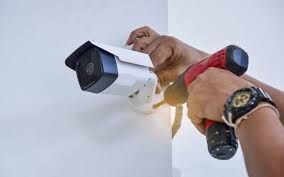
February 26, 2025
The Growing Need for Surveillance in Athens, TX In the heart of Texas, Athens is a vibrant city known for its friendly community and serene surroundings. However, like any other city, it faces its share of security challenges. This is where video surveillance cameras come into play, offering a robust solution to ensure the safety and security of residents and businesses alike. At Security Solutions of Athens, we are committed to providing top-notch surveillance systems that cater to the unique needs of our community. Why Video Surveillance Cameras are Essential Crime Deterrence One of the most significant advantages of video surveillance cameras is their ability to deter criminal activity. The mere presence of cameras can discourage potential intruders or vandals, making them think twice before targeting a property. Real-Time Monitoring Modern surveillance systems allow for real-time monitoring, enabling property owners to keep an eye on their premises from anywhere, at any time. This is particularly beneficial for businesses that require constant surveillance to protect their assets and ensure employee safety. Evidence Collection In the unfortunate event of a crime, video surveillance cameras provide crucial evidence that can aid law enforcement in their investigations. High-definition footage can capture details such as facial features and license plate numbers, making it easier to identify and apprehend suspects. Enhanced Security Measures Today's surveillance cameras come equipped with advanced features like motion detection, night vision, and smart integration. These features enhance the overall security of a property, providing comprehensive protection day and night. Customized Solutions for Athens, TX At Security Solutions of Athens, we understand that every property has unique security needs. That's why we offer customized video surveillance solutions tailored to meet the specific requirements of our clients in Athens, TX. Residential Security For homeowners, video surveillance cameras provide peace of mind by ensuring the safety of their loved ones and property. Our residential surveillance systems are designed to cover all entry points, including doors, windows, and driveways. With remote access capabilities, homeowners can monitor their property in real-time from their smartphones or computers. Commercial Security Businesses in Athens, TX, can greatly benefit from our commercial surveillance solutions. From retail stores to office buildings, our systems are equipped to handle the security demands of various commercial establishments. Features like high-definition video, motion alerts, and cloud storage ensure that business owners have complete control over their security. Public Safety Video surveillance also plays a crucial role in enhancing public safety. In public spaces such as parks, schools, and government buildings, surveillance cameras help monitor activities and prevent incidents. Our systems are designed to cover large areas and provide clear, detailed footage that can be used for security and operational purposes. Integrating Surveillance with Smart Technology In an era where technology is rapidly evolving, integrating video surveillance cameras with smart home devices offers an added layer of convenience and security. At Security Solutions of Athens, we provide systems that seamlessly connect with other smart devices, creating a unified and intelligent security network. Key Features of Smart Integration Remote Access: Monitor your surveillance cameras from anywhere using your smartphone or tablet. Automated Alerts: Receive instant notifications for any suspicious activity detected by the cameras. Voice Control: Use virtual assistants like Amazon Alexa or Google Assistant to control your surveillance system hands-free. Smart Analytics: Advanced analytics features can identify unusual activities and provide actionable insights for enhanced security. Why Choose Security Solutions of Athens? Choosing the right surveillance system is a critical decision that requires expert guidance. At Security Solutions of Athens, we pride ourselves on offering top-quality products and exceptional customer service. Here's why you should consider us for your surveillance needs: Expertise and Experience With years of experience in the security industry, our team of professionals is well-equipped to handle any security challenge. We stay updated with the latest advancements in surveillance technology to provide our clients with the most effective solutions. Personalized Service We believe in building strong relationships with our clients. Our personalized service ensures that we understand your specific needs and provide solutions that are tailored to meet them. From the initial consultation to installation and ongoing support, we are with you every step of the way. Commitment to Quality Quality is at the core of everything we do. Our surveillance systems are sourced from trusted manufacturers and are tested to ensure they meet the highest standards of performance and reliability. We offer warranties and maintenance services to ensure your system continues to operate optimally. In conclusion, video surveillance cameras are an essential tool in enhancing the security of residential, commercial, and public spaces in Athens, TX. At Security Solutions of Athens , we are dedicated to providing state-of-the-art surveillance systems that offer comprehensive protection and peace of mind. Contact us today to learn more about our products and services and how we can help you secure your property. Feel free to visit our website at Security Solutions of Athens for more information and personalized assistance.
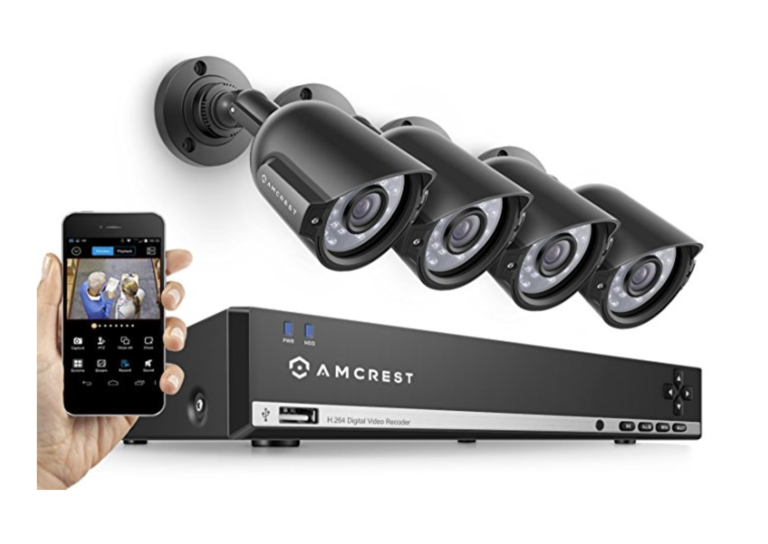
February 26, 2025
Why Wireless Security Alarms are Gaining Popularity in Texas In the expansive landscapes of Texas, homeowners and businesses alike are increasingly turning to advanced technologies to safeguard their premises. Among these technologies, wireless security alarm systems are becoming a popular choice, offering numerous benefits over traditional wired systems. At Security Solutions of Athens, we understand the unique needs of Texans and are dedicated to providing cutting-edge security solutions. The Advantages of Wireless Security Alarms Flexibility and Ease of Installation Wireless security alarms are incredibly easy to install, as they do not require extensive wiring. This flexibility means that they can be set up in any location, even in hard-to-reach places. Whether you have a sprawling ranch or a compact urban home, wireless systems can be tailored to fit your specific needs. Enhanced Security Features Modern wireless security alarms come equipped with a variety of features such as motion detectors, cameras, and smart integration capabilities. These systems can be linked to your smartphone, allowing you to monitor your property in real-time, receive alerts, and even control the system remotely. Cost-Effective Solution Without the need for extensive wiring and labor, wireless systems are often more cost-effective than their wired counterparts. Moreover, the maintenance and upgrades are simpler, saving you time and money in the long run. Portability For those who may move frequently or prefer a system that can easily be relocated, wireless security alarms are ideal. You can take your security system with you wherever you go, ensuring continuous protection. Meeting the Unique Security Needs of Texans Texas is known for its diverse environment, ranging from bustling cities to serene rural areas. Each of these settings comes with its own security challenges. At Security Solutions of Athens, we offer wireless security alarm systems designed to address the specific needs of our Texas clientele. Urban Security Challenges In urban areas like Houston, Dallas, and Austin, the high population density can lead to increased crime rates. Wireless security systems provide a robust solution, with features like high-definition surveillance cameras and instant alerts that help deter criminal activity and provide peace of mind. Rural Security Challenges Rural areas, on the other hand, may face issues related to isolation and limited access to immediate emergency services. Wireless security alarms, with their long-range capabilities and battery-powered options, ensure continuous protection even in the most remote locations. Integration with Smart Home Technology Wireless security alarm systems are not just about protection; they also enhance the convenience of modern living. These systems can seamlessly integrate with other smart home devices, creating a cohesive and intelligent home environment. Imagine being able to control your lights, thermostat, and security system all from a single app! Features of Smart Integration Remote Monitoring: Check live feeds from your security cameras and receive alerts for any suspicious activities, no matter where you are. Automated Responses: Set your system to automatically turn on lights or lock doors when a security breach is detected. Voice Control: Integrate with virtual assistants like Amazon Alexa or Google Assistant for hands-free operation. Why Choose Security Solutions of Athens? At Security Solutions of Athens, we are committed to providing top-notch security solutions tailored to the needs of Texans. Our wireless security alarm systems are designed with the latest technology to ensure maximum protection and ease of use. Our Commitment to Quality We understand that security is not a one-size-fits-all solution. That's why we offer personalized consultations to assess your specific needs and recommend the best system for you. Our team of experts is dedicated to ensuring that your installation is seamless and your system is operating optimally. Customer Satisfaction Your safety and satisfaction are our top priorities. We offer ongoing support and maintenance services to ensure that your security system continues to meet your needs. Our customer testimonials speak volumes about our commitment to excellence. In conclusion, wireless security alarm systems provide a flexible, cost-effective, and technologically advanced solution for the diverse security needs of Texans. At Security Solutions of Athens , we are proud to offer these state-of-the-art systems to help you protect what matters most. Explore our range of products and services today to discover how we can enhance your security. Feel free to reach out to us at Security Solutions of Athens for more information and personalized assistance. Together, let's build a safer Texas.
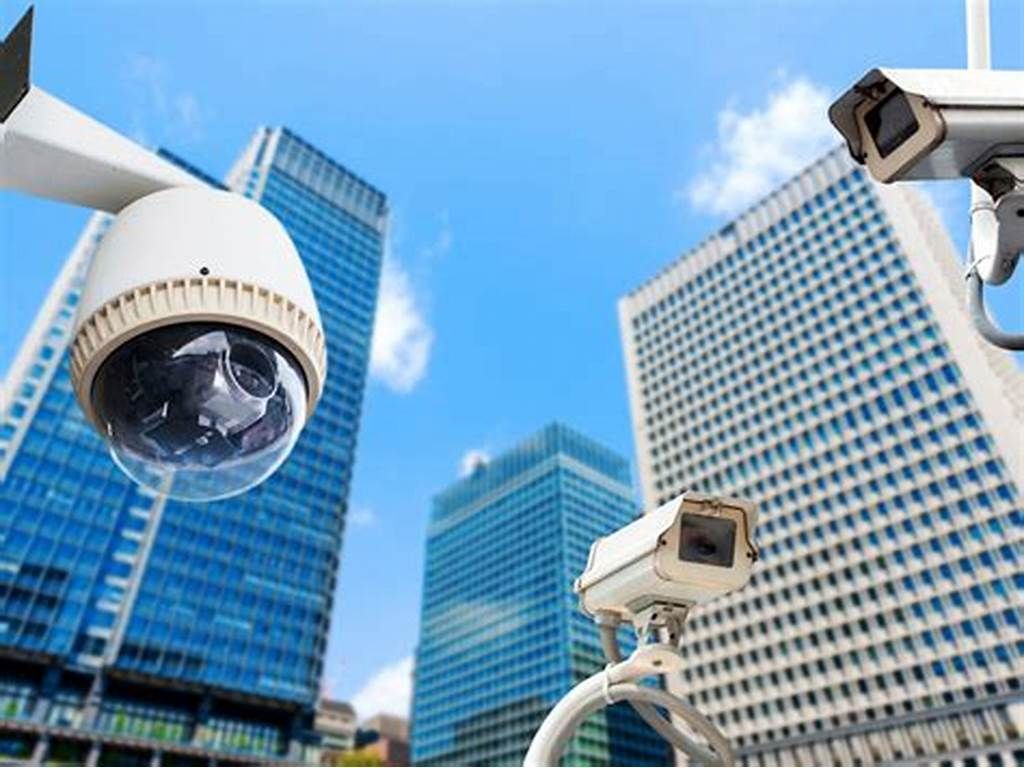
February 26, 2025
In today’s fast-paced world, ensuring the safety of your home or business is more critical than ever. With technological advancements, surveillance cameras have become an essential tool for monitoring and protecting properties. For residents and business owners in Athens, TX, investing in high-quality surveillance systems is a practical and effective way to enhance security and peace of mind. Why Surveillance Cameras Are Essential in Athens, TX Athens, TX, known for its close-knit community and charming atmosphere, is not immune to security challenges. Whether you’re a homeowner wanting to safeguard your family or a business owner protecting your assets, surveillance cameras provide a reliable solution. Here’s why installing surveillance cameras in Athens, TX, is a smart choice: Crime Deterrence: The presence of surveillance cameras acts as a strong deterrent to potential criminals. Visible cameras signal that the property is monitored, reducing the likelihood of theft, vandalism, and other criminal activities. Real-Time Monitoring: Modern surveillance systems offer real-time monitoring, allowing property owners to keep an eye on their premises from anywhere. Whether you’re at work, on vacation, or simply away from home, you can access live footage through your smartphone or computer. Evidence Collection: In the unfortunate event of a crime, surveillance footage can provide crucial evidence. High-resolution cameras capture clear images and videos, aiding law enforcement in identifying and apprehending suspects. Enhanced Safety for Families and Employees: Surveillance cameras contribute to the overall safety of your loved ones and employees. Knowing that the premises are monitored can reduce stress and create a secure environment. Insurance Benefits: Many insurance companies offer discounts on premiums for properties equipped with security cameras. This can lead to significant savings over time. Types of Surveillance Cameras Available in Athens, TX When considering surveillance cameras in Athens, TX, it’s important to understand the different types available to meet your specific needs: Dome Cameras: These cameras are typically mounted on ceilings and are known for their discreet appearance. They are ideal for indoor surveillance and provide a wide field of view. Bullet Cameras: Recognizable by their cylindrical shape, bullet cameras are often used for outdoor surveillance. They are weather-resistant and offer long-range viewing capabilities. PTZ Cameras: Pan-Tilt-Zoom (PTZ) cameras allow for remote control of the camera’s movement and zoom. They are perfect for monitoring large areas and can be adjusted to focus on specific points of interest. Wireless Cameras: Wireless surveillance cameras offer flexibility and ease of installation. They connect to your Wi-Fi network, eliminating the need for extensive wiring. Hidden Cameras: Also known as covert cameras, these are designed to blend into the environment, making them ideal for discreet monitoring. Choosing the Right Surveillance System for Your Needs Selecting the right surveillance system involves considering various factors to ensure optimal security: Location: Determine whether you need indoor or outdoor cameras, or a combination of both. Outdoor cameras should be weatherproof and durable. Resolution: Higher resolution cameras provide clearer images and better detail. Consider cameras with at least 1080p resolution for effective monitoring. Night Vision: Ensure your cameras are equipped with infrared or low-light capabilities to capture clear footage in the dark. Storage Options: Decide between local storage (DVR/NVR systems) or cloud storage. Cloud storage offers remote access and additional security against data loss. Budget: Surveillance systems come in a range of prices. Determine your budget and find a system that offers the best features within your price range. Professional Installation vs. DIY When it comes to installing surveillance cameras in Athens, TX, you have the option of professional installation or a DIY approach: Professional Installation: Hiring experts ensures that your cameras are installed correctly and optimally positioned for maximum coverage. Professionals can also provide guidance on the best system for your needs. DIY Installation: If you’re tech-savvy, you may opt for a DIY installation. Many wireless systems are designed for easy setup, but it’s important to follow instructions carefully to ensure proper functionality. Maintaining Your Surveillance System To keep your surveillance system functioning effectively, regular maintenance is essential: Regular Inspections: Periodically check your cameras for any signs of damage or malfunction. Ensure lenses are clean and free from obstructions. Software Updates: Keep your system’s software up to date to benefit from the latest features and security enhancements. Test Functionality: Regularly test your cameras and recording equipment to ensure they are capturing and storing footage correctly. Review Footage: Occasionally review stored footage to ensure the system is recording as expected and to familiarize yourself with the playback process. Conclusion Investing in surveillance cameras in Athens, TX , is a proactive step towards safeguarding your home or business. With various options available, you can find a system that meets your specific security needs. Whether you opt for professional installation or a DIY approach, maintaining your system ensures long-term reliability and peace of mind. Protect your property and loved ones with a robust surveillance system tailored to your requirements.
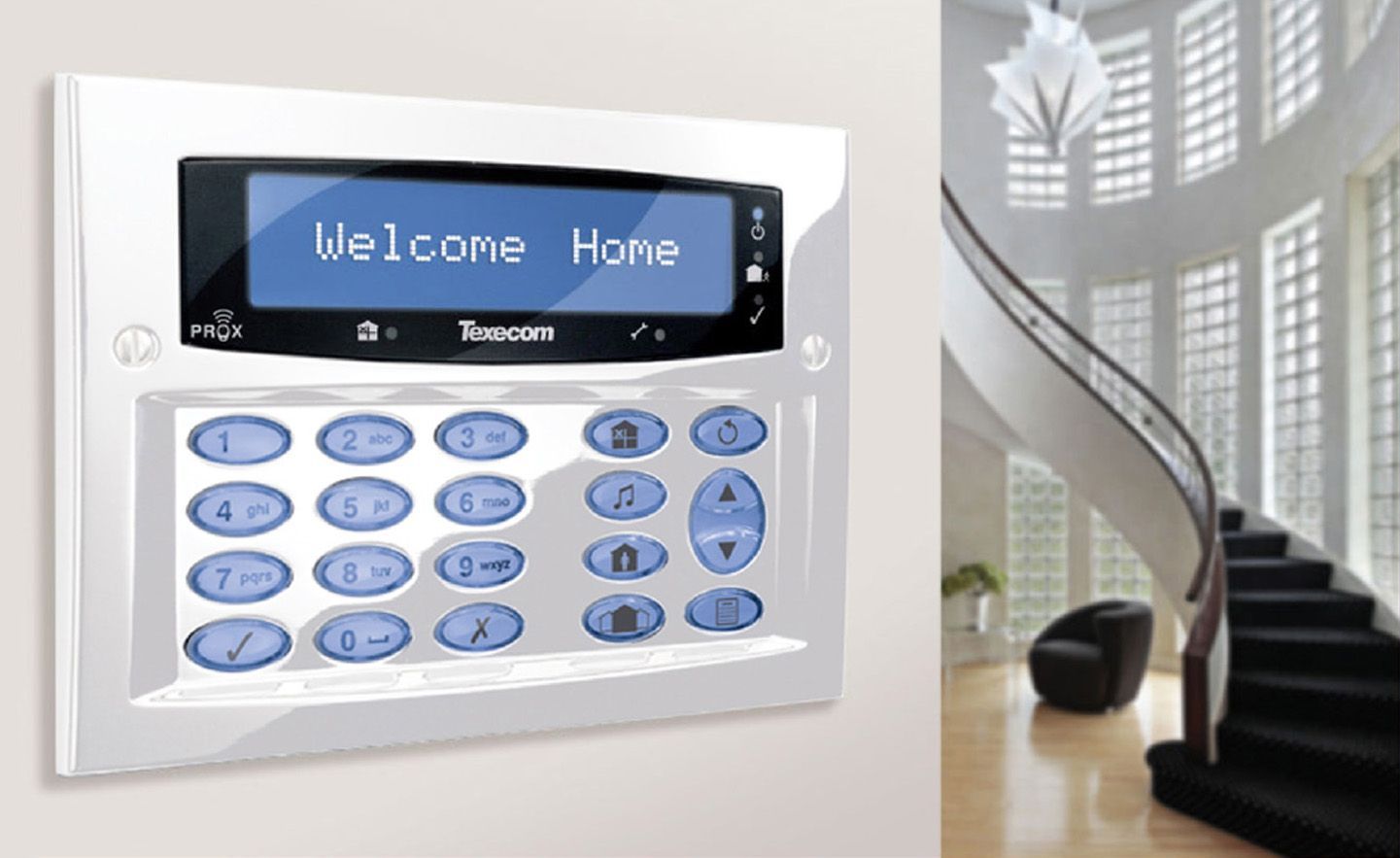
February 26, 2025
In today’s world, ensuring the safety and security of your home or business is more crucial than ever. Whether you’re safeguarding your family, protecting valuable assets, or securing sensitive information, a reliable security monitoring system is a must. For residents and business owners in Athens, TX, Security Solutions of Athens offers top-tier security alarm monitoring services designed to meet your unique needs and give you peace of mind. Why Security Alarm Monitoring is Essential With rising crime rates and increasing concerns about property safety, investing in professional security alarm monitoring is a smart decision. Here are some compelling reasons why security alarm monitoring should be a priority: Deterrence of Criminal Activity: Visible security alarms and signage can deter potential intruders from attempting a break-in. Knowing that a property is monitored by a state-of-the-art alarm system often makes criminals think twice. Immediate Emergency Response: Modern alarm systems are connected to monitoring centers that can notify law enforcement or emergency services instantly in case of a breach, fire, or other emergencies. Protection of Valuables: Whether it’s expensive electronics, important documents, or sentimental items, security alarm monitoring helps protect your valuables from theft and damage. Enhanced Peace of Mind: Knowing that your property is monitored 24/7 allows you to relax and focus on what matters most, whether you’re at home, at work, or away on vacation. What Sets Security Solutions of Athens Apart At Security Solutions of Athens , we understand that every home and business has unique security needs. Our customized security alarm monitoring services are tailored to provide maximum protection while fitting seamlessly into your lifestyle or business operations. Expertise and Experience: With years of experience in the security industry, our team of professionals is highly trained to install and monitor the latest alarm systems. We stay updated with emerging technologies to offer the best solutions. Comprehensive Security Solutions: From basic alarm monitoring to advanced integrated security setups, we offer a wide range of services. This includes motion detectors, surveillance cameras, fire alarms, and access control systems. Personalized Approach: We conduct thorough security assessments to understand your specific needs and vulnerabilities. Our customized monitoring plans ensure that every corner of your property is protected. Reliable Support and Maintenance: Security doesn’t stop at installation. We provide ongoing support and maintenance to ensure your alarm systems function optimally at all times. Types of Security Alarm Monitoring We Offer Security Solutions of Athens offers a variety of monitoring services to cater to different security needs: Intrusion Monitoring: Detect unauthorized access and trigger alerts to prevent break-ins. Fire and Smoke Monitoring: Early detection of fire hazards can save lives and property. Our systems alert you and emergency services immediately. Carbon Monoxide Monitoring: Protect your family or employees from the silent threat of carbon monoxide poisoning. Panic Alarm Monitoring: Ideal for businesses and vulnerable individuals, panic buttons provide immediate alerts to emergency responders. Wireless Alarm Monitoring: Easy to set up and highly flexible, wireless systems are perfect for properties where wiring is challenging. The Security Alarm Monitoring Process When you choose Security Solutions of Athens, you can expect a seamless, hassle-free monitoring process: Consultation and Assessment: We start with a detailed consultation to understand your security concerns and assess your property’s layout. Customized Plan Development: Based on the assessment, we develop a tailored security plan, selecting the most suitable monitoring systems and components. Professional Installation and Setup: Our skilled technicians install the necessary equipment and ensure it’s properly connected to our monitoring centers. System Testing and Training: After installation, we thoroughly test the system to ensure it functions flawlessly. We also provide comprehensive training so you know how to operate and manage your new monitoring system. Ongoing Support: Our relationship doesn’t end after setup. We offer continuous support, regular maintenance, and updates to keep your system in top condition. Benefits of Choosing Professional Security Alarm Monitoring While DIY security systems are popular, professional monitoring offers significant advantages: Expert Knowledge: Professionals ensure that your system is monitored correctly and covers all vulnerable areas. Access to Advanced Technology: Professional systems often include features not available in retail options, such as integration with other security measures and remote monitoring. Compliance with Regulations: Professional monitoring ensures your system complies with local regulations and insurance requirements. Time and Cost Efficiency: Avoid the trial-and-error process of DIY monitoring and potential costly mistakes. Why Athens, TX Residents Trust Security Solutions of Athens Our commitment to excellence and customer satisfaction has made us a trusted name in Athens, TX. We take pride in helping our community feel safe and secure, offering top-quality products and unparalleled service. Local Expertise: As a local business, we understand the specific security challenges faced by Athens residents and businesses. Proven Track Record: Our satisfied customers and numerous successful monitoring setups speak to our reliability and expertise. Commitment to Innovation: We continually update our offerings to include the latest advancements in security technology. Get Started with Your Security Alarm Monitoring Today Don’t wait until it’s too late to protect your home or business. Investing in professional security alarm monitoring is a proactive step toward ensuring the safety of your loved ones, employees, and assets. Contact Security Solutions of Athens today to schedule a consultation and take the first step toward a more secure future. Our team is ready to design a custom security monitoring solution tailored to your unique needs. Visit our website or call us now to learn more. Secure your peace of mind with the trusted experts at Security Solutions of Athens – because your safety is our priority!
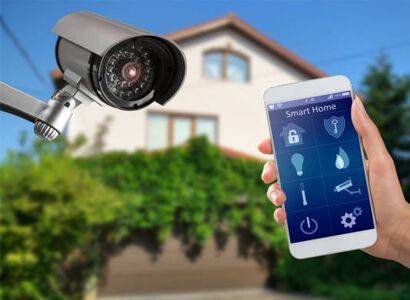
February 26, 2025
In today’s world, ensuring the safety and security of your home or business is more crucial than ever. Whether you’re safeguarding your family, protecting valuable assets, or securing sensitive information, a reliable security system is a must. For residents and business owners in Athens, GA, Security Solutions of Athens offers top-tier security alarm installation services designed to meet your unique needs and give you peace of mind. Why Security Alarm Installation is Essential With rising crime rates and increasing concerns about property safety, investing in a professional security alarm system is a smart decision. Here are some compelling reasons why security alarm installation should be a priority: Deterrence of Criminal Activity: Visible security alarms and signage can deter potential intruders from attempting a break-in. Knowing that a property is protected by a state-of-the-art alarm system often makes criminals think twice. Immediate Emergency Response: Modern alarm systems are connected to monitoring centers that can notify law enforcement or emergency services instantly in case of a breach, fire, or other emergencies. Protection of Valuables: Whether it’s expensive electronics, important documents, or sentimental items, a security alarm helps protect your valuables from theft and damage. Enhanced Peace of Mind: Knowing that your property is monitored 24/7 allows you to relax and focus on what matters most, whether you’re at home, at work, or away on vacation. What Sets Security Solutions of Athens Apart At Security Solutions of Athens, we understand that every home and business has unique security needs. Our customized security alarm installation services are tailored to provide maximum protection while fitting seamlessly into your lifestyle or business operations. Expertise and Experience: With years of experience in the security industry, our team of professionals is highly trained to install and maintain the latest alarm systems. We stay updated with emerging technologies to offer the best solutions. Comprehensive Security Solutions: From basic alarm systems to advanced integrated security setups, we offer a wide range of services. This includes motion detectors, surveillance cameras, fire alarms, and access control systems. Personalized Approach: We conduct thorough security assessments to understand your specific needs and vulnerabilities. Our customized installation plans ensure that every corner of your property is protected. Reliable Support and Maintenance: Security doesn’t stop at installation. We provide ongoing support and maintenance to ensure your alarm systems function optimally at all times. Types of Security Alarms We Install Security Solutions of Athens offers a variety of alarm systems to cater to different security needs: Intrusion Alarms: Detect unauthorized access and trigger alerts to prevent break-ins. Fire and Smoke Alarms: Early detection of fire hazards can save lives and property. Our systems alert you and emergency services immediately. Carbon Monoxide Detectors: Protect your family or employees from the silent threat of carbon monoxide poisoning. Panic Alarms: Ideal for businesses and vulnerable individuals, panic buttons provide immediate alerts to emergency responders. Wireless Alarms: Easy to install and highly flexible, wireless systems are perfect for properties where wiring is challenging. The Security Alarm Installation Process When you choose Security Solutions of Athens, you can expect a seamless, hassle-free installation process: Consultation and Assessment: We start with a detailed consultation to understand your security concerns and assess your property’s layout. Customized Plan Development: Based on the assessment, we develop a tailored security plan, selecting the most suitable alarm systems and components. Professional Installation: Our skilled technicians install the alarms with minimal disruption to your daily routine, ensuring everything is set up correctly and efficiently. System Testing and Training: After installation, we thoroughly test the system to ensure it functions flawlessly. We also provide comprehensive training so you know how to operate and manage your new security system. Ongoing Support: Our relationship doesn’t end after installation. We offer continuous support, regular maintenance, and updates to keep your system in top condition. Benefits of Choosing Professional Security Alarm Installation While DIY security systems are popular, professional installation offers significant advantages: Expert Knowledge: Professionals ensure that your system is installed correctly and covers all vulnerable areas. Access to Advanced Technology: Professional systems often include features not available in retail options, such as integration with other security measures and remote monitoring. Compliance with Regulations: Professional installers ensure your system complies with local regulations and insurance requirements. Time and Cost Efficiency: Avoid the trial-and-error process of DIY installations and potential costly mistakes. Why Athens Residents Trust Security Solutions of Athens Our commitment to excellence and customer satisfaction has made us a trusted name in Athens, GA. We take pride in helping our community feel safe and secure, offering top-quality products and unparalleled service. Local Expertise: As a local business, we understand the specific security challenges faced by Athens residents and businesses. Proven Track Record: Our satisfied customers and numerous successful installations speak to our reliability and expertise. Commitment to Innovation: We continually update our offerings to include the latest advancements in security technology. Get Started with Your Security Alarm Installation Today Don’t wait until it’s too late to protect your home or business. Investing in a professional security alarm installation is a proactive step toward ensuring the safety of your loved ones, employees, and assets. Contact Security Solutions of Athens today to schedule a consultation and take the first step toward a more secure future. Our team is ready to design a custom security solution tailored to your unique needs. Visit our website or call us now to learn more. Secure your peace of mind with the trusted experts at Security Solutions of Athens – because your safety is our priority!
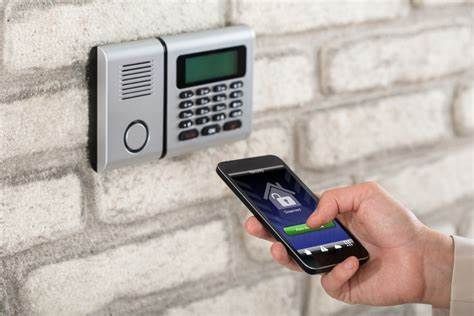
January 27, 2025
In today's world, home security has become a top priority for homeowners. One of the most effective ways to enhance the security of your property is by installing outdoor home security cameras. These cameras provide surveillance, help deter crime, and ensure that you can monitor your home in real-time. Whether you're at home or away, outdoor security cameras offer peace of mind by keeping an eye on everything happening around your property. The Importance of Outdoor Security Cameras Outdoor security cameras are no longer just a luxury but a necessity. With the rising rates of property crimes, including burglary, vandalism, and theft, homeowners need reliable systems to protect their property. Here are some reasons why outdoor security cameras are an excellent investment for your home: 1. Deterrence of Criminal Activity The sight of an outdoor security camera can significantly reduce the likelihood of crime. Criminals are less likely to target homes with visible cameras, knowing that they are being recorded and are more likely to be caught. This deterrent effect is one of the main reasons why homeowners invest in security cameras for their properties. 2. Real-Time Monitoring and Alerts Outdoor security cameras allow you to monitor your home in real-time, whether you’re inside or on the go. Many modern cameras are equipped with mobile apps that send notifications to your smartphone, informing you of any unusual activity. These real-time alerts enable you to take immediate action if necessary, such as contacting authorities or monitoring a potential intruder until help arrives. 3. Improved Evidence for Law Enforcement In the event of a crime, security cameras provide valuable footage that can help identify the perpetrator and provide evidence for law enforcement. The high-definition video captured by outdoor cameras can help authorities in their investigation, making it easier to recover stolen property and hold criminals accountable. 4. Increased Sense of Security Knowing that your property is being monitored 24/7 gives you peace of mind. Whether you're at work, on vacation, or even just running errands, you can always check on your property through your mobile device. This constant connection to your security system helps ensure that you're always in control of your home's safety. 5. Protection of Family and Loved Ones Outdoor security cameras play an essential role in safeguarding not only your property but also your loved ones. They help monitor areas where children or pets may be playing, providing an extra layer of protection. Additionally, cameras can detect if someone is loitering around your property, alerting you to potential danger. Features to Look for in Outdoor Security Cameras When choosing outdoor home security cameras, it’s important to consider the following features to ensure that you’re getting the best value for your investment: 1. Weather Resistance Outdoor cameras are exposed to various weather conditions, including rain, snow, and extreme heat. It's crucial to select cameras that are weatherproof and designed to withstand these elements. Look for cameras that are rated with an IP (Ingress Protection) rating, which indicates their level of water and dust resistance. 2. Night Vision A critical feature for outdoor security cameras is night vision. Criminal activity often occurs at night, so having cameras with infrared (IR) capabilities allows you to monitor your property in low light or complete darkness. Look for cameras with clear, high-resolution night vision for optimal surveillance. 3. Motion Detection Motion detection is a valuable feature that triggers the camera to begin recording when it senses movement within its field of view. This feature helps conserve storage space, as it only records when necessary. Additionally, motion-detected alerts sent to your smartphone can inform you of any activity on your property. 4. Resolution and Video Quality Clear, high-quality video is crucial when reviewing footage or sharing it with law enforcement. Choose outdoor cameras with at least 1080p resolution for crisp and detailed footage. Higher-resolution cameras will provide more clarity, making it easier to identify faces, license plates, and other important details. 5. Two-Way Audio Some outdoor security cameras come equipped with two-way audio, allowing you to communicate with anyone on your property through the camera’s speaker and microphone. This can be useful for talking to delivery personnel, visitors, or even deterring intruders by letting them know they’re being monitored. 6. Cloud Storage and Local Storage Options Outdoor security cameras typically offer both cloud storage and local storage options for storing recorded footage. Cloud storage is a secure, off-site solution that allows you to access footage remotely, while local storage (such as an SD card or DVR) ensures that your footage is stored on your premises. Make sure to choose a system that offers adequate storage capacity and backup options. Benefits of Integrating Outdoor Security Cameras into a Smart Home System Integrating outdoor security cameras with your existing smart home system can enhance their functionality and convenience. Smart cameras can connect with other smart devices, such as smart doorbells, smart locks, and smart lighting, creating a cohesive and comprehensive security system. You can automate actions, such as turning on the lights when motion is detected or receiving notifications when the camera detects unusual activity. Smart home integration also allows you to view and control your cameras remotely via smartphone apps, voice assistants, and smart hubs. This integration brings ease and flexibility, ensuring your home is constantly monitored, even when you are away. Conclusion Investing in outdoor security cameras for your home provides numerous benefits, from deterring crime to ensuring your family’s safety. With advanced features such as night vision, motion detection, high-definition video, and weather resistance, modern security cameras offer comprehensive protection for your property. By integrating them into your overall home security system, you can stay connected to your home and be alerted to any suspicious activity in real time. Choosing the right outdoor security camera system can be overwhelming, but with careful consideration of your home’s needs and the features available, you can ensure that your property remains safe and secure. Whether you're looking to prevent intrusions or monitor your home when you're not around, outdoor home security cameras provide the solution you need to maintain peace of mind.
VISIT US
,
This is a placeholder for the Yext Knolwedge Tags. This message will not appear on the live site, but only within the editor. The Yext Knowledge Tags are successfully installed and will be added to the website.
This is a placeholder for the Yext Knolwedge Tags. This message will not appear on the live site, but only within the editor. The Yext Knowledge Tags are successfully installed and will be added to the website.
HOURS
This is a placeholder for the Yext Knolwedge Tags. This message will not appear on the live site, but only within the editor. The Yext Knowledge Tags are successfully installed and will be added to the website.
HOURS
This is a placeholder for the Yext Knolwedge Tags. This message will not appear on the live site, but only within the editor. The Yext Knowledge Tags are successfully installed and will be added to the website.
License Number B19316
CONTACT US
This is a placeholder for the Yext Knolwedge Tags. This message will not appear on the live site, but only within the editor. The Yext Knowledge Tags are successfully installed and will be added to the website.
Hi. Do you need any help?
Privacy Policy
| Do Not Share My Information
| Conditions of Use
| Notice and Take Down Policy
| Website Accessibility Policy
© 2025
The content on this website is owned by us and our licensors. Do not copy any content (including images) without our consent.


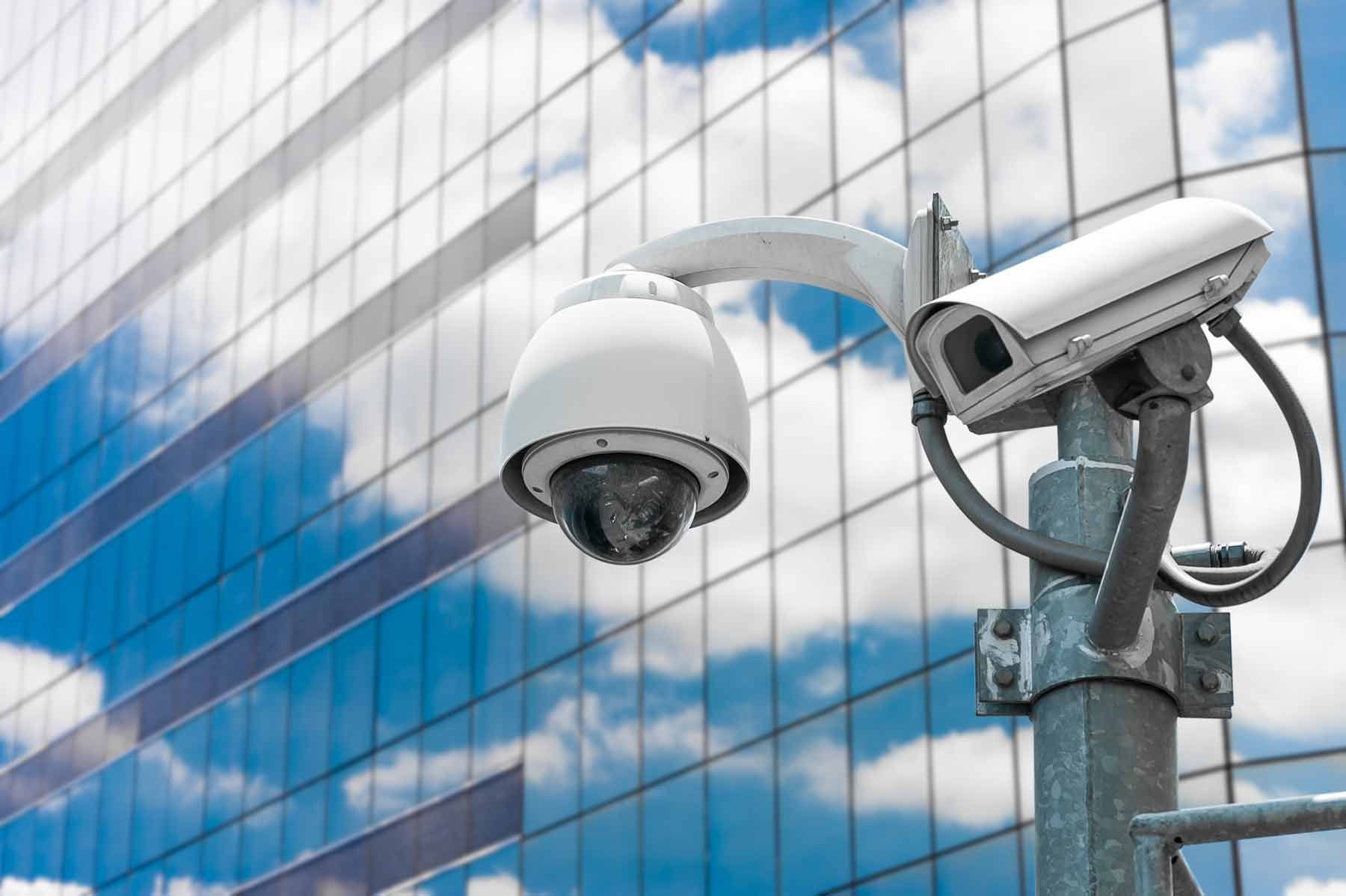
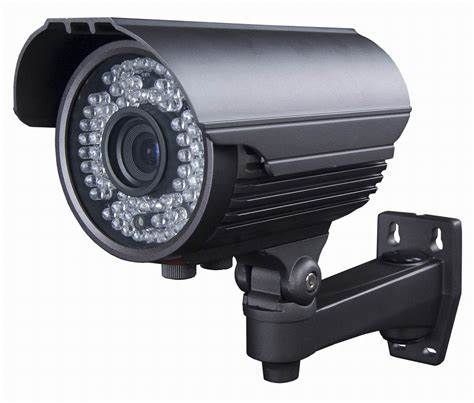
Share On: